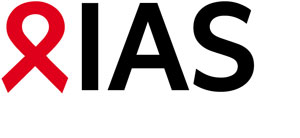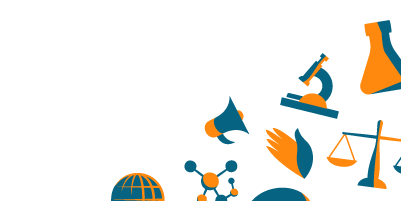 © Copyright 2022 – 2024 IAS – the International AIDS Society
© Copyright 2022 – 2024 IAS – the International AIDS Society
Contact us at [email protected]

The AIDS 2022 Workshop Programme is aimed at increasing the capacity of delegates to implement and advocate for effective, evidence-based HIV policies and interventions in their communities and countries. AIDS 2022 offers high-quality, targeted workshops to promote and enhance opportunities for knowledge transfer, skills development and collaborative learning.
Key information
Workshop submission dates: 16 November 2021 to 27 January 2022.
Number: Up to 15 workshops delivered in-person and a number of workshops delivered virtually. The final number of workshops depends on the number of quality submissions we receive.
Delivery: The hybrid format of the conference allows in-person and virtual workshops. In-person workshops take place in designated rooms for participants on-site in Montreal. Virtual workshops are accessible to both on-site and online participants through the conference platform.
Length: Workshops are 60-90 minutes long.
Number of facilitators: The minimum number of facilitators is two.
Capacity: Workshops may have limited access, with participation granted on a first-come, first-served basis.
Contact: You can contact the Workshops team via email at [email protected].
Workshop selection process
Workshops are selected from proposals submitted by the public through the AIDS 2022 website. At least two reviewers assess each proposal.
We have sent notification of selection outcome to all workshop submitters.
General selection criteria
- Does this workshop reflect the AIDS 2022 theme and objectives?
- Is the topic current and relevant? Is it different from previous conferences?
- Does this workshop cover or target people living with or affected by HIV?
- Is the focus of the workshop on knowledge transfer, skills development and collaborative learning?
- Do the facilitators have previous experience in public speaking and workshop facilitation?
- Is the session inclusive and/or applicable to multiple regions?
- Does the workshop have two or more forms of audience participation and/or interaction?
Workshop focus areas
Community
Community involvement is an essential part of the HIV response. This series of workshops showcases effective community empowerment programmes that are strengthening public health outcomes in HIV treatment, prevention, care and support. The workshops emphasize the importance of building skills and capacity in relation to peer-driven programmes and services that are run by and for people living with and affected by HIV.
Participating in these workshops enables delegates to broaden their knowledge and skills in mobilizing key populations and local communities to implement effective and sustainable programmes. By sharing the successes of global community responses to HIV, workshops emphasize the importance of building partnerships and strengthening networks between civil society, policy makers and health professionals.
Leadership
These workshops provide a platform for new and current leaders to learn innovative skills, which are critical for ensuring an effective response to the HIV epidemic. Delegates develop and enhance their ability to assess and measure commitments and actions of leaders in their own communities.
These workshops are intended to provide practical advice on best practice and challenge individuals and organizations to consider ways in which they go about developing leadership skills and accountability processes. The aim is to understand such practices and examine what outcomes are possible for an effective, transparent and coordinated HIV response.
Science
These workshops enhance skills and encourage collaborative learning on the latest scientific research, emerging technologies and breakthroughs in policy and programmes to inform and guide the global response to the HIV epidemic.
Workshops in this focus area serve to:
- Accelerate the scaling up of evidence-informed approaches to HIV care, treatment and prevention
- Highlight excellence in biomedical, epidemiological, behavioural, social, economic, political and operational research, as well as in multidisciplinary science
- Discuss the impact of the HIV response on health and social systems, including the potential for effective HIV programmes to transform the response for today and generations to come.
Workshop levels
Foundation level: These workshops are for learners new to a career in HIV and health. They are intended to build strong foundation skills and knowledge.
Intermediate level: These workshops are for mid-career learners who have a strong foundation and are looking to advance their professional expertise and become more effective team leaders. They offer a robust selection of topics that will help delegates specialize their focus, explore new areas and opportunities or expand their skills to the next level of professional development.
Advanced level: These workshops are for people who have been working in HIV and health for years and are looking for new, fresh approaches to the HIV response and delivering on high-stakes projects. They allow delegates to build and nurture their talent while increasing their own influence and marketability and strengthen engagement with key experts at leading global health organizations.
Workshop interactivity
The main difference between a workshop and a symposium is that a workshop targets specific audiences and facilitates more active participation with interactive tools.
Examples of tools to offer a more dynamic and collaborative experience: case studies, multiple perspectives (point/counter), panel with Q&A (moderated), role play, storytelling/testimonials, formal debate, keynote address followed by discussion, multi-media, film, video presentation, open-forum, open-space, town-hall meeting, roundtable and group work.
FAQs
What is a workshop?
For AIDS 2022, the 24th International AIDS Conference, a workshop is an interactive session that promotes and enhances opportunities for knowledge transfer, skills development and collaborative learning.
How do workshops differ from other sessions at AIDS 2022?
Workshops differ from other sessions at AIDS 2022 as they:
- Use interactive tools, such as small group exercises, discussion and role play, to offer a more interactive experience
- May have limited participant capacity, which means that more members of the audience can take part
- Are targeted at specific audiences
- Are longer in duration (60-90 minutes)
- Have at least two facilitators
Can workshop facilitators apply for a scholarship?
Yes. The main facilitator and co-facilitator(s) can add information about their workshop submission (with the submission number) to AIDS 2022 Scholarship Programme applications, available on the conference account from 1 December 2021 to 4 February 2022. Each person must apply separately for a scholarship, using the same email address for the scholarship application and for workshop submission so that the scholarship applications can be linked to the workshop submission. Please note that if the awarded facilitator changes after the scholarship is allocated, the scholarship will be cancelled unless a request is made to transfer the grant to the new facilitator.



